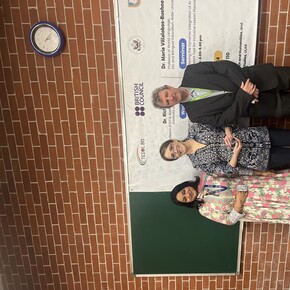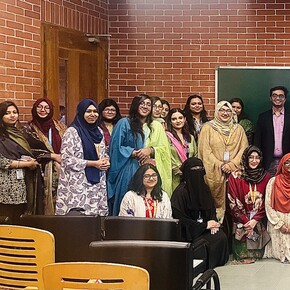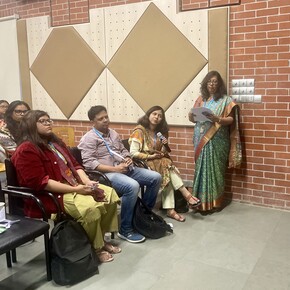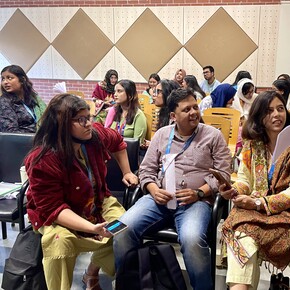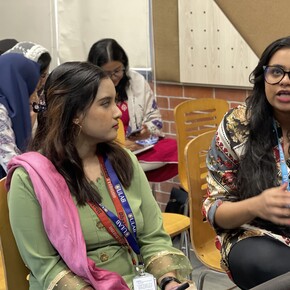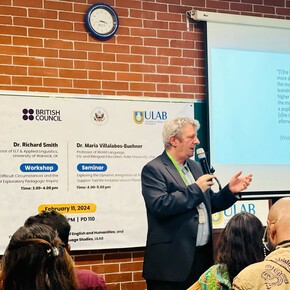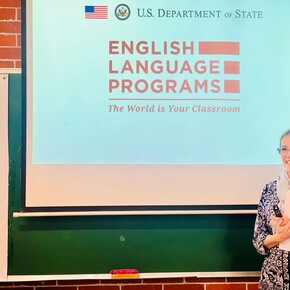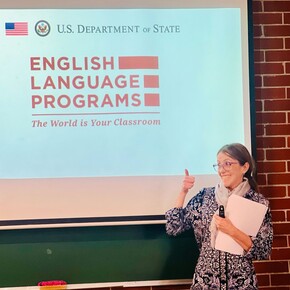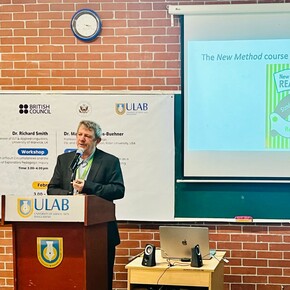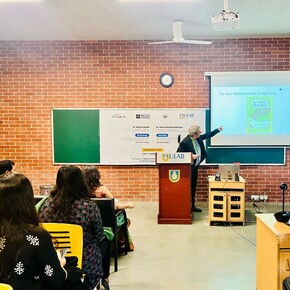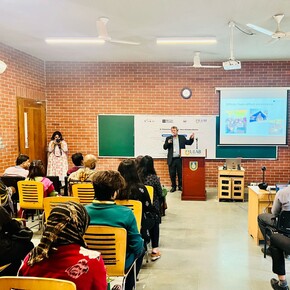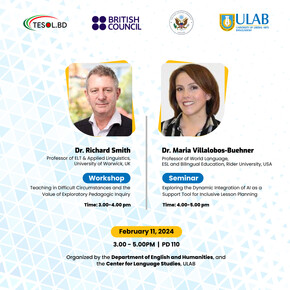Workshop and Seminar by Dr. Richard Smith and Dr. Maria Villalobos-Buehner
On February 11, 2024, the Department of English and Humanities (DEH) and Center for Language Studies, ULAB, organized a workshop and seminar with Dr. Richard Smith, Professor of ELT and Applied Linguistics, University of Warwick, UK, and Dr. Maria Villalobos-Buehner, Professor of World Languages, ESL and Bilingual Education, Rider University, USA. The seminar by Dr. Smith focused on “Teaching in Difficult Circumstances and the Value of Exploratory Pedagogic Inquiry” while Dr. Villalobos-Buehner’s workshop delved into “Exploring the Dynamic Integration of AI as a Support Tool for Inclusive Lesson Planning.”
Hosted by Ms. Arifa Ghani Rahman, Head of the Department of English and Humanities, the program had commenced with a welcome address by Professor Imran Rahman, Vice Chancellor, ULAB. After the address, Ms. Rahman introduced the first speaker, Dr. Richard Smith.
Dr. Smith began his seminar with insights on overcoming teaching barriers, drawing on historical perspectives of English teaching in Bengal since 1919. He focused on Michael Philip West’s observations from teaching in India with reference to West’s book Teaching English In Difficult Circumstances. Dr. Smith addressed contemporary challenges, such as student fixation on social media and inadequate resources. Solutions included peer correction, engagement strategies, and involving parents, illustrated by success stories from Nepal and Bangladesh. Dr. Smith emphasized the significance of practitioner research, citing examples of different teachers, such as Martha De La Cruz Quintero's techniques for handling misbehavior. The need for action research in specific classroom settings was underscored as it empowers teachers to drive positive changes in the education system.
Following Dr. Smith’s seminar, Dr. Faheem Hasan Shahed, Director, CLS, introduced Dr. Maria Villalobos-Buehner who conducted a workshop that explored the SAMR Model (Substitution, Augmentation, Modification, Redefinition) and focused on the integration of AI, specifically the AI-powered tool Diffit, for inclusive lesson planning. Dr. Maria engaged participants in an interactive activity where participants worked in groups without using their voices. Each three-member team was tasked with creating something out of the white sheets of paper given to each member, which, together, would make a whole. Some teams communicated using sign language and created interesting interpretations of the project. This task aimed to illustrate the challenges and benefits of inclusive groups. The SAMR model's stages were discussed, emphasizing how Diffit integrates technology by adapting various materials and creating differentiated activities based on language levels and proficiency. Diffit's features, including adapting reading passages, generating quizzes, and creating transcripts, were highlighted. Following the workshop, a discussion ensued on the benefits and challenges of incorporating AI into the curriculum.
The session concluded with closing remarks from Ms. Arifa Rahman. She expressed gratitude to the guest speakers and presented tokens of appreciation. The workshop and seminar provided a comprehensive exploration of effective teaching strategies in challenging circumstances. They also shed light on the integration of AI for inclusive lesson planning, fostering a valuable exchange of insights among the current and future educators.
Report by Nabila Faiza Islam (201013115)

